
In dictionaries, “culture” is defined as the ideas, customs, and social behaviors of a particular society or group of people. These different cultures were all shaped, over many centuries, by people’s shared experiences as natives of a specific country.
What is South African culture like? This is not an easy question to answer! Not surprising, really—looking at our demographics, we see that the official South African population comprises approximately 60 million people with very diverse origins, languages, cultures, and religions. For instance, we have 11 official languages!
What is your country’s culture like? Share with us in the comments.
At AfrikaansPod101.com, we celebrate diversity because we understand that global citizenship is real! Developed countries, in particular, are melting pots of many nationalities and cultures. We tailor our lessons and our teaching approach accordingly.
With that in mind, let’s delve into the culture of South Africa together!
 Table of Contents
Table of Contents
- The Importance of Understanding Afrikaans Culture in South Africa
- Afrikaans Culture in South Africa – It’s Complicated
- South African Culture
- Traditional Holidays
- Immerse Yourself in South African Culture with AfrikaansPod101!
1. The Importance of Understanding Afrikaans Culture in South Africa
Having a grasp of the diversity of South African culture is key to having a good experience when you visit! An overview of the Afrikaans culture in South Africa will go a long way toward helping you understand our people as a whole. There are plenty of overlaps among our numerous cultures. It is the different South African cultures that make up our unique Rainbow Nation, a group identity that South Africans are still busy whittling into shape.
Knowing the quirks particular to a nation’s people is similar to getting to know another person well while building a relationship with them. Therefore, applying good relationship skills to this process will foster exactly that—good relationships. Here’s why this is important globally:
- As mentioned, we often find plenty of similarities among our cultures. These similarities emphasize the common bonds we all share. In turn, this makes for a sense of global community and is important for such things as trade, tourism, and survival (as the recent COVID-19 pandemic has demonstrated).
- Still, our cultures are also very different from one another. Differences keep us and the world interesting and unique. But even more importantly, learning how to deal with them in relationships builds character! For instance, when differences are very pronounced, do we exercise our “better angels” of patience, respect, acceptance, and tolerance, or do we lapse into an easier (but ultimately alienating) “us vs. them” narrative?
- Embracing your own culture gives you a sense of identity and a place in the world.
2. Afrikaans Culture in South Africa – It’s Complicated
What is Afrikaans culture? Well, the answer is not as simple as many sources (such as this Wikipedia page) would have us believe. Ask any Afrikaans-speaking South African how they would characterize an “Afrikaner,” and the replies will vary greatly depending on who you’re talking to.
The simple definition involves only one criterion. It posits the Afrikaans language as the touchstone of Afrikaner culture and nationality. By estimation, over five million people in the country speak the language as their mother tongue.
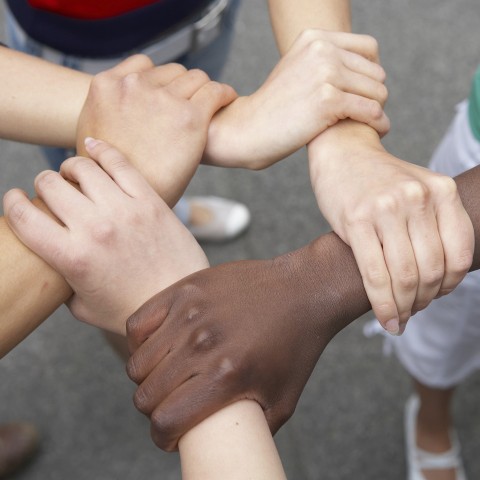
But not all South Africans agree with this simplistic view. Hundreds of thousands of South Africans who speak Afrikaans as a first language (especially from the Northern and Western Cape provinces) describe themselves only as “Coloreds,” or people of color. You will be hard-pressed to find any of them identifying as Afrikaners.
South Africa’s political history is the backdrop to this attitude. It is most often the politically conservative natives who prefer to define Afrikaners as a group of one ethnicity (Caucasian/White), and of Dutch origin. Many South Africans of all races and languages find this definition limiting and offensive.
This is because its criteria are antiquated. They date back to an era early in the twentieth century, when a group of Afrikaans-speaking, white settlers finally took rule of the country. This group referred to themselves as Boere (“Farmers”), collectively the proud Boerenasie (literally: “Farmer nation”), and they remained in rule for almost a century. Yet, those who now call themselves the Boerenasie comprise only a small group of conservative, openly racist, white, Afrikaans-speaking nationals.

Many disillusioned Afrikaners (mostly younger and white) vehemently oppose this myopic view of their nationality. The white Afrikaners’ political history is neither a pleasant nor a flattering one, and many white Afrikaans natives choose to distance themselves from it.
This drives to the heart of a complex, painful matter—national identity, with Afrikaans as its symbol. The topic is also one of great reach and depth, which is beyond the scope of this article.
So, for brevity’s sake, we’re going to focus on only one criterion for Afrikaans culture: the language!
3. South African Culture
Let’s start by qualifying that a large portion of South African society is Western-based and heavily influenced by European and American cultures, irrespective of our language or ethnicity. This means that most South Africans observe Western customs and habits, and our basic societal structures are similar to those of many Western countries.
The culture is also shaped by South Africa’s social structures and people’s living conditions—the largest part of which is unfortunately still abominable. But as humans do everywhere in the world, we strive to overcome our circumstances by finding beauty in the rubble and hope despite adversity.
3.1 Family

In South African culture, family life can vary from one household to another. But one thing is for sure: Afrikaners are big on family, no matter what size or shape it takes!
Hierarchy is important in the more conservative homes. The man is head of the house, even if he’s not the primary breadwinner. Also, children are expected to respect adults and their elders, an expectation that is often enforced with strict discipline. Corporal punishment is (fortunately) unlawful.
In the cities, this family model tends to be more fluid and the hierarchy more relaxed. Many women have also become breadwinners out of necessity, and women’s rights in the country are of the most progressive in the world.
- → Read our article Names and Terms for Families in Afrikaans to learn more about South African families and pick up some relevant vocabulary!
3.2 Religion
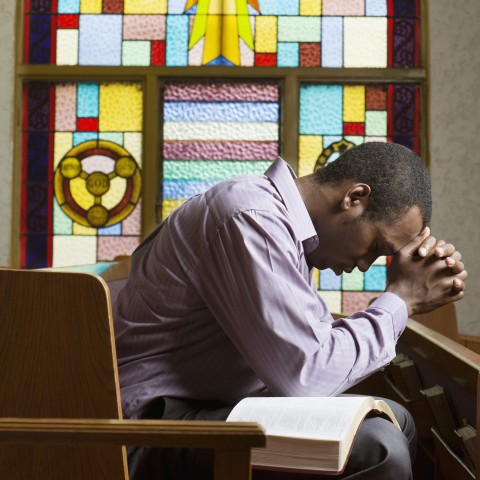
The South African Constitution, globally considered one of the most progressive and liberal constitutions, guarantees everyone the freedom to practice any religion.
Christianity is our country’s main religion, with the three top denominations being the Protestant Dutch Reformed Church, the Zion Christian Churches, and the Catholic Church.
Other religions include Islam, Hinduism, African Traditional Religion, and Judaism. In the last national census that included religion, approximately five million South Africans described themselves as “non-religious,” and over three million stated no religious affiliation.
Those Afrikaners who are religious tend to be Christian, and their faith often has great prominence in their lives.
3.3 Social & Work
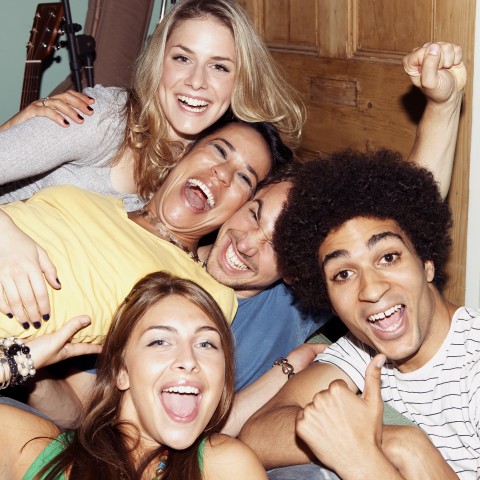
Afrikaners have a distinct basic temperament that underpins all their behavior. Drawing on their inherited Dutch heritage, this collective character tends to be pragmatic with a down-to-earth, courageous approach to life. Sometimes this approach comes across as blunt, or even tactless—no pussyfooting for this lot!
Almost paradoxically, Afrikaners are also kindhearted, generous, accepting, and community-builders. Especially in rural areas, we take care of one another and often participate in charitable community work. The plight of children, in particular, gets a lot of attention in the non-profit sector.
Our British heritage ensures that, while socially polite and welcoming, we are private and take time to warm up to strangers. When you become part of our circle, however, you’ve made friends for life (and some very loyal ones, too!).
South African culture in the workplace is defined by Afrikaners’ willingness to pull their weight. That colleague always leaving the office last on a Friday afternoon? Probably an Afrikaner. Most are known to be reliable, loyal, and hard workers, and we value the same in employers and employees alike.
- → Like the British, we’re also big on polite social habits. On our blog, you can learn How to Say ‘Thank You’ in Afrikaans and How to Say ‘Hello’ in Afrikaans to sound more like a native in your interactions.
3.4 Art
Pablo Picasso famously said: “Art is the lie that enables us to realize the truth.”
Art is “untrue” in that it is simply an image of the world, and not the world itself. Yet, like a mirror, it does reflect our world accurately and truthfully back to us. Some South African artists give a voice to what urgently needs fixing in their communities or personal lives, while others showcase the ideal and our country’s beauty.
– Painters and Sculptors
One such artist is Afrikaans-speaking painter and sculptor Willie Bester from the Western Cape. He turns items sourced from rubbish dumps, which he sees as symbolic of his community, into messages of hope and love. Some of his pieces also take the form of bleakly beautiful reminders of the still-unredeemed.
From the previous century, Maria Magdalena (Maggie) Laubser was an Impressionist painter and printmaker, also hailing from the Western Cape province. Her artworks, initially criticized, eventually became widely accepted and internationally acknowledged for their often pastoral beauty.
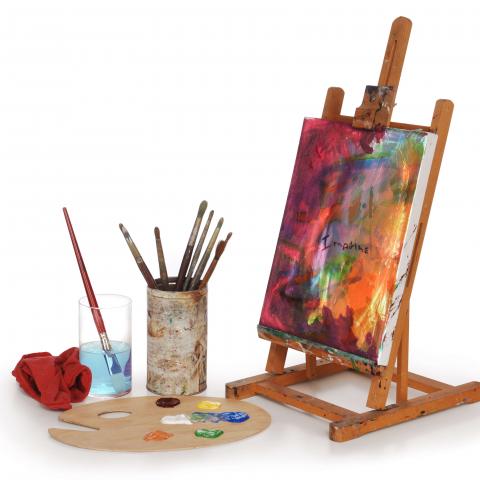
– Music
German philosopher Arthur Schopenhauer called music the “food of the soul.” He probably didn’t mean elevator music, but even this must touch the soul in an enigmatic way or it wouldn’t exist!
In Afrikaans culture, music is important. Over the decades, Afrikaans music has evolved to become a platform of political activism, but it tells so much more about us than our political battles.
Our collective musical oeuvre boasts multiple genres, some of which are rather innovative.
Some Afrikaans rappers are quite controversial. The most prominent is probably one of South Africa’s most famous exports: Die Antwoord. This male and female hip-hop duo were previously married and have a child together. Their musical style was described as revolutionary when they first broke into the hip-hop scene via YouTube in 2010. Their songs’ lyrics, often a mix of English and Afrikaans, are angry, explicit, and vulgar, and their videos are filled with disturbing and dystopian imagery. Reactionary art cannot get more in-your-face than this, so be warned—this is not for the faint-hearted!
Rapping is not renowned for its gentle tunes and lyrics, but that doesn’t mean the genre is always harsh. For instance, Die Happy Song (“The Happy Song”) from renowned Afrikaans Capetonian rapper, Hemelbesem (literally: “Heaven Broom”), really warms the heart. It addresses social issues of very poor communities, but with a hopeful angle.
Opposite on the shock-value spectrum is Spoegwolf (literally: “Spit Wolf”), an alternative rock band that made national music history in 2019 by becoming the first South African artists to reach #1 on the Apple Music Album charts. Don’t let the sometimes-rowdy tunes fool you—the lyrics, which are mostly pure Afrikaans, raise the spirit and nourish the heart while keeping it real.
- → Read more about South African performing artists in this blog post on Afrikaans YouTube Channels.
– Acting and Directing
South Africa has produced a good number of Hollywood screen-successes over the years. Some notable names include Charlize Theron, Trevor Noah, and Lesley-Ann Brandt, all of whom speak fluent Afrikaans!
Gorgeous ex-model Lesley-Ann Brandt boasts an impressive on-screen repertoire, including roles in big productions like the TV series Spartacus. This former Capetonian’s most famous performance so far was as Mazikeen, a feisty demon-with-a-heart in the hugely popular FOX TV series Lucifer.
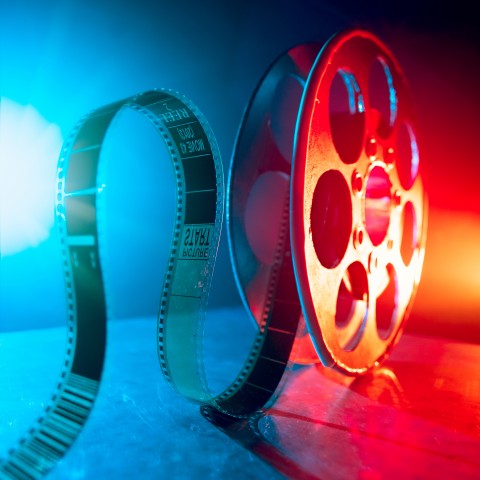
An actress-producer who needs no introduction is Academy Award-winning Charlize Theron, originally hailing from Benoni, Gauteng province. This versatile artist is as comfortable in action-hero gear as she is in serious character roles. In 2003, she won the Best Actress Oscar for portraying the U.S. serial killer Eileen Wuornos in Monster, and she was nominated for another one for her role in North Country (2005). She also owns a production company and is currently one of Hollywood’s highest-paid actresses.
Primetime Emmy Award-winner Trevor Noah is another internationally renowned South African export. Originally from a very poor community near Johannesburg, Trevor beat the odds and rose to fame for his remarkable talents as a satirist and comedian. He was performing to full-house international audiences long before he took over as host on Comedy Central’s The Daily Show in 2015, a position he still held at the time of this writing.
Also worth mentioning are two former South African directors, Gavin Hood (Academy Award-winner) and Neill Blomkamp (Academy Award nominee). Gavin gained fame for directing the movie Tsotsi, based on the novel with the same title by S.A. playwright, Athol Fugard. In 2005, this film won an Oscar for Best Foreign Language Film and was nominated for a Golden Globe the following year.
In 2009, Neill directed the critically acclaimed sci-fi film District 9, an adaptation of his earlier short film Alive in Joburg. The film was nominated for the Academy Award Best Picture in 2010.
– Literature
Afrikaans is an expressive, deeply emotional language that can really stir the heart. If your aim is to learn a people’s true spirit, mastering their language and reading their literature is one of the best ways to do so.
South Africa boasts two Nobel Prize-winning English authors. But we also like to brag about our other internationally acclaimed authors who write (or wrote) mostly in Afrikaans.
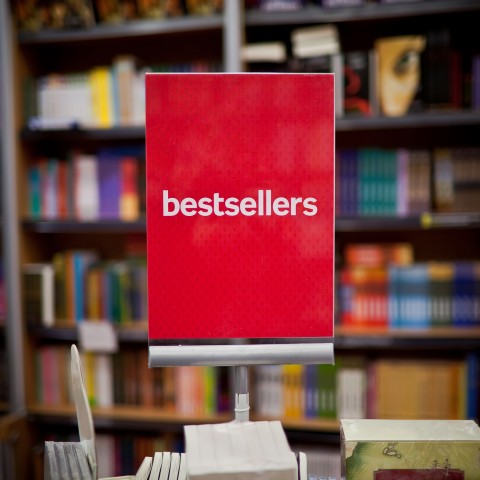
Some notable wordsmiths include:
- Deon Meyer, an ex-journalist who is making it huge as a fiction writer with his politically based thrillers. His work has been translated into many other languages and provided the fodder for at least one movie and a TV series.
- Marita Van Der Vyver, also an ex-reporter, first wrote books for young adults before winning several awards for her first adult novel, Griet skryf ‘n sprokie (“Griet Writes a Fairy Tale”).
- Ronelda Kamfer is a young poet from Cape Town who has already won several prestigious national awards for her work.
- Adam Small was a 20th- and 21st-century political activist, writer, and poet whose work beautifully and poignantly captured the Colored people’s struggle for democracy. Also having won prestigious awards, Small’s work has been translated into 20 different languages, and even posthumously this writer has a cult following.
If you’re a serious student of Afrikaans, make reading Afrikaans literature your aim! And allow AfrikaansPod101 to help you get there, starting with the Afrikaans alphabet, of course.
3.5 Food
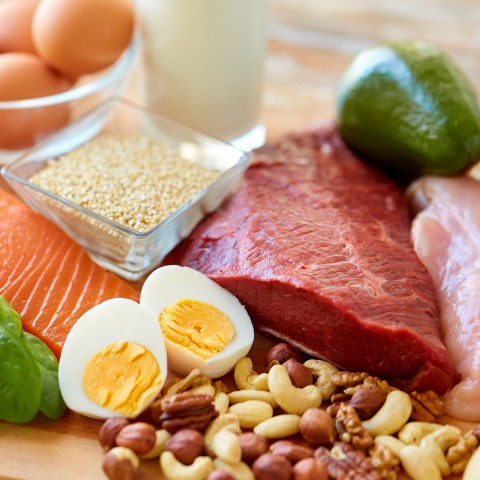
Eating is a universally wonderful activity that unites communities. South Africans love to gather outdoors (we have a fantastic climate for this) and around a fire. South African cuisine is exceptionally diverse—we’re not called the Rainbow Nation for nothing!
Of particular interest is the South African-made sweet liquor concoction called Amarula Don Pedro.
Don Pedro cocktails allegedly hail from Blouberg Strand (“Blue Mountain Beach”), Cape Town. They were first mixed in the 70s, by chef Danny Ferris of the Bellinzona restaurant. Legend has it that Danny was inspired by a Scottish whiskey maker during a trip to Scotland, who added a shot to ice cream as part of a whiskey-tasting demonstration. Most South Africans know and love Don Pedro cocktails, especially for dessert. The recipe involves a decadent mix of whiskey, double cream, and ice cream. In recent years, whiskey is sometimes replaced with locally brewed Amarula, a creamy dessert liquor.
South African culture and food go hand in hand, so let’s have a look at a few more signature dishes:
- Braais (“Barbeques” – Nope, it’s not quite the same!)
- Bobotie (A Malay-based curried mince dish.)
- Boerewors (Literally: “farmers sausage” – a traditional South African sausage we love to barbeque.)
- Biltong en droë wors (Droë wors = “dried sausage.” English approximate for biltong = “jerky beef.” However, we make biltong with beef, game, or ostrich meat. Fish biltong is called bokkoms.)
- Koeksisters or koesisters (Literally: “cake sisters” – a confectionary of deep-fried dough that’s sometimes braided, dipped in sweet syrup.)
- Malvapoeding (Literally: “marshmallow dessert” – somewhat similar to the beloved British sticky toffee pudding, but some say it’s better.)
- Melktert (Literally: “milk tart” – a creamy cinnamon pastry or confection, very similar to the British custard pie or the Portuguese pastéis de nata = “cream puffs”.)
- Pannekoek (Literally: “pancake” – similar to the French crêpe, but usually served with cinnamon-sugar and a dash of lemon juice.)
- Potjiekos (Literally: “little-pot food” – similar to stew, but different.)
- → You can learn so much more about South African foods on our page titled The Best South African Foods with Recipes to Try!
4. Traditional Holidays
What a country’s people commemorate says a lot about their culture. As is the case with most developing countries in the world, South African history and culture are darkly dappled, marked with both glorious victories and horrible battles lost. However, we still love to commemorate how strong we are and how far we’ve come.
- → Learn all about important days and South African cultural celebrations in this blog post titled Dates in Afrikaans: Afrikaans Months of the Year and More! You can also view our quick lesson on the Top 5 Important Dates During the South African Calendar Year.
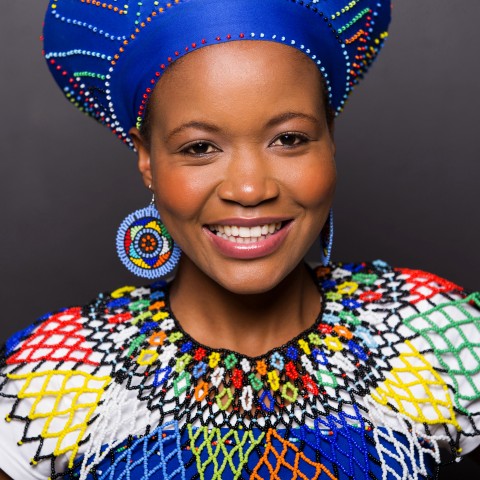
5. Immerse Yourself in South African Culture with AfrikaansPod101!
We take pride in presenting you with culturally relevant, up-to-date Afrikaans lessons with many free resources.
These include:
Choose the enrollment option that best suits your needs and join us immediately for a language learning experience like no other!
About the author: Christa Davel is an experienced bilingual (Afrikaans and English) freelance writer and editor, and is currently based in Cape Town, South Africa.










